Filter by
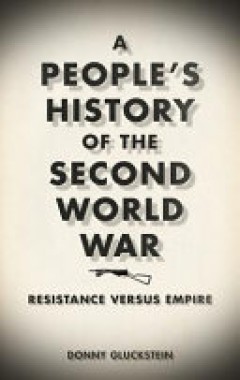
A people's history of the Second World War : resistance versus empire
A People's History of the Second World War unearths the fascinating history of the war as fought 'from below'. Until now, the vast majority of historical accounts have focussed on the conflict between the Allied and Axis powers for imperialist mastery. Donny Gluckstein shows that in fact between 1939 and 1945 two distinct wars were fought – one ‘from above’ and one ‘from below’. Using…
- Edition
- 1
- ISBN/ISSN
- 9780745328034
- Collation
- ix, 262p
- Series Title
- -
- Call Number
- 940.53 DON

Iberian world empires and the globalization of Europe 1415–1668
This open access book analyses Iberian expansion by using knowledge accumulated in recent years to test some of the most important theories regarding Europe’s economic development. Adopting a comparative perspective, it considers the impact of early globalization on Iberian and Western European institutions, social development and political economies. In spite of globalization’s minor impor…
- Edition
- 1
- ISBN/ISSN
- 9789811308338
- Collation
- xxvi, 520p; ill
- Series Title
- Palgrave Studies in Comparative Global History
- Call Number
- BAR i
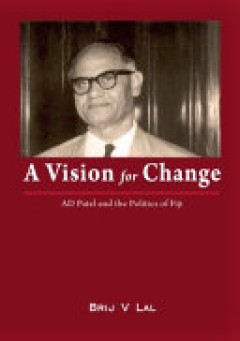
A Vision for Change: AD Patel and the Politics of Fiji
‘Dr Lal’s book is more than an eloquent account of the political struggle of one of Fiji’s outstanding leaders. It is a timely reminder that the process of constitutional change hangs in the balance, as it did at the time of Mr Patel’s death. I hope his example will inspire future generations in Fiji to realise the vision articulated by a brilliant and courageous advocate of democracy, …
- Edition
- 23
- ISBN/ISSN
- 9781921666599
- Collation
- 308
- Series Title
- -
- Call Number
- 320.099611.LAL

Microhistories of technology : making the world
In this open access book, Mikael Hård tells a story of how people around the world challenged the production techniques and products brought by globalization. Retaining their autonomy and freedom, creative individuals selectively adopted or rejected modern gadgets, tools, and machines. In standard historical narratives, globalization is portrayed as an unstoppable force that flattens all obsta…
- Edition
- -
- ISBN/ISSN
- 9783031228131
- Collation
- xx, 290p
- Series Title
- Palgrave Studies in the History of Science and Technology
- Call Number
- 907.2 MIK m

Empire’s violent end : comparing Dutch, British, and French wars of decolo…
In Empire's Violent End, Thijs Brocades Zaalberg and Bart Luttikhuis, along with expert contributors, present comparative research focused specifically on excessive violence in Indonesia, Algeria, Vietnam, Malaysia, Kenya, and other areas during the wars of decolonization. In the last two decades, there have been heated public and scholarly debates in France, the United Kingdom, and the Netherl…
- Edition
- 1
- ISBN/ISSN
- 9781501764165
- Collation
- 246p
- Series Title
- -
- Call Number
- 325.309405 EMP b
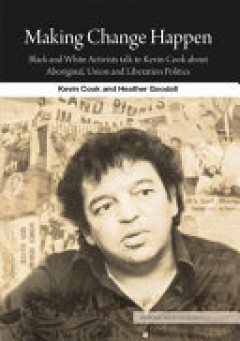
Making Change Happen : Black and White Activists talk to Kevin Cook about Abo…
This book is a unique window into a dynamic time in the politics and history of Australia. The two decades from 1970 to the Bicentennial in 1988 saw the emergence of a new landscape in Australian Indigenous politics. There were struggles, triumphs and defeats around land rights, community control of organisations, national coalitions and the international movement for Indigenous rights. The cha…
- Edition
- 11
- ISBN/ISSN
- 9781921666742
- Collation
- 448
- Series Title
- -
- Call Number
- 303.484.COO

At home in Renaissance Bruges : connecting objects, people and domestic space…
How did citizens in Bruges create a home? What did an ordinary domestic interior look like in the sixteenth century? And more importantly: how does one study the domestic culture of bygone times by analysing documents such as probate inventories? These questions seem straightforward, yet few endeavours are more challenging than reconstructing a sixteenth-century domestic reality from written so…
- Edition
- -
- ISBN/ISSN
- 9789462703179
- Collation
- 320 p
- Series Title
- -
- Call Number
- 747.249332 DEG a
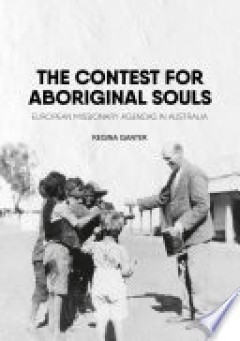
The Contest for Aboriginal Souls : European missionary agendas in Australia
This book covers the missionary activity in Australia conducted by non-English speaking missionaries from Catholic and Protestant mission societies from its beginnings to the end of the mission era. It looks through the eyes of the missionaries and their helpers, as well as incorporating Indigenous perspectives and offering a balanced assessment of missionary endeavour in Australia, attuned to …
- Edition
- 15
- ISBN/ISSN
- 9781760462055
- Collation
- 280
- Series Title
- -
- Call Number
- 266.00899915.GAN
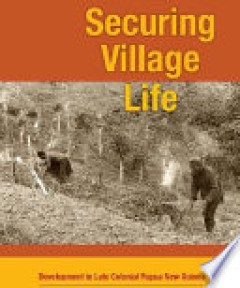
Securing Village Life : Development in Late Colonial Papua New Guinea
Securing Village Life: Development in Late Colonial Papua New Guinea examines the significance for post-World War II Australian colonial policy of the modern idea of development. Australian officials emphasised the importance of bringing development for both the colony of Papua and the United Nations Trust Territory of New Guinea. The principal form that development took involved securing small…
- Edition
- 13
- ISBN/ISSN
- 9781922144850
- Collation
- 318
- Series Title
- -
- Call Number
- 338.9009953.MAC
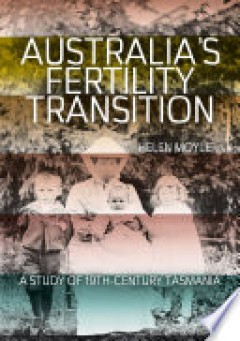
Australia’s Fertility Transition : A study of 19th-century Tasmania
In the late 19th and early 20th centuries, most countries in Europe and English-speaking countries outside Europe experienced a fertility transition, where fertility fell from high levels to relatively low levels. England and the other English-speaking countries experienced this from the 1870s, while fertility in Australia began to fall in the 1880s. This book investigates the fertility tran…
- Edition
- 13
- ISBN/ISSN
- 9781760463373
- Collation
- 318
- Series Title
- -
- Call Number
- 304.6309946.MOY
 Computer Science, Information & General Works
Computer Science, Information & General Works  Philosophy & Psychology
Philosophy & Psychology  Religion
Religion  Social Sciences
Social Sciences  Language
Language  Pure Science
Pure Science  Applied Sciences
Applied Sciences  Art & Recreation
Art & Recreation  Literature
Literature  History & Geography
History & Geography